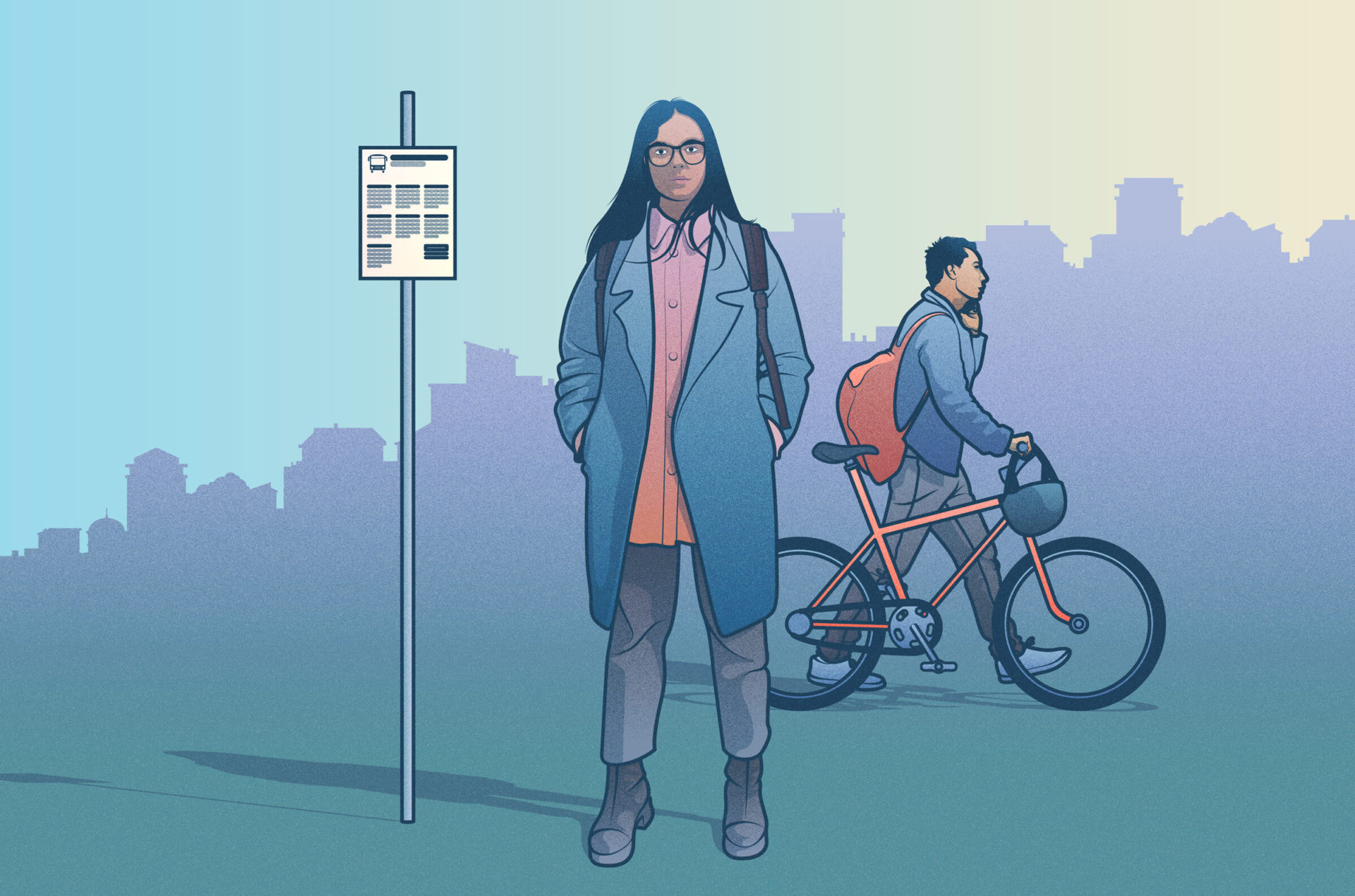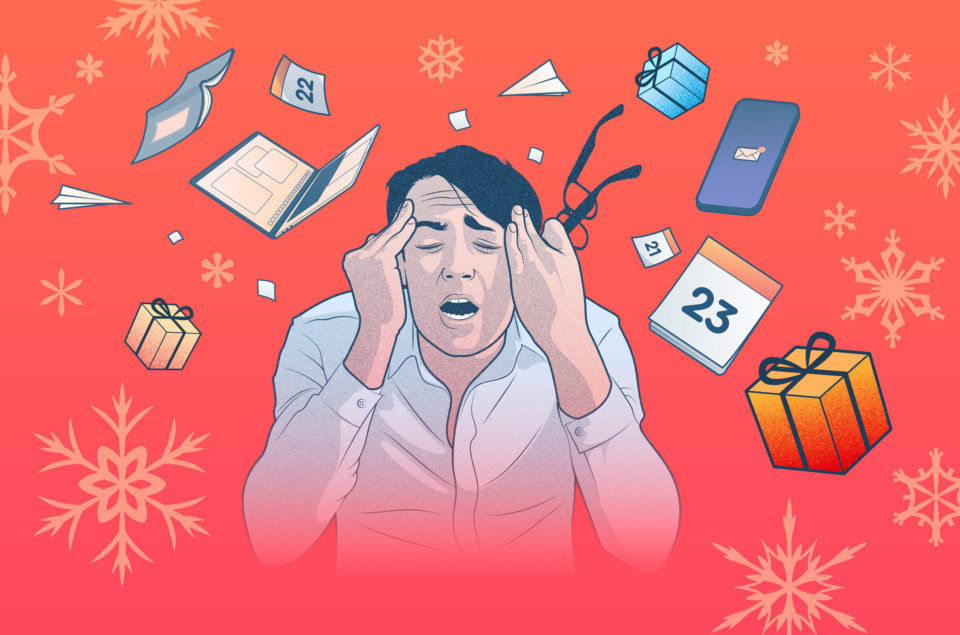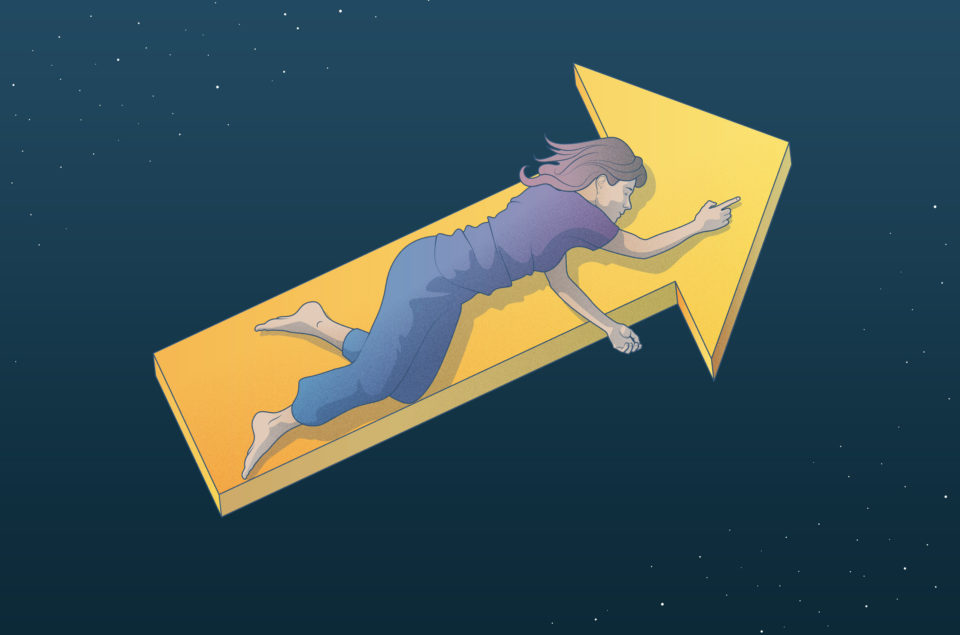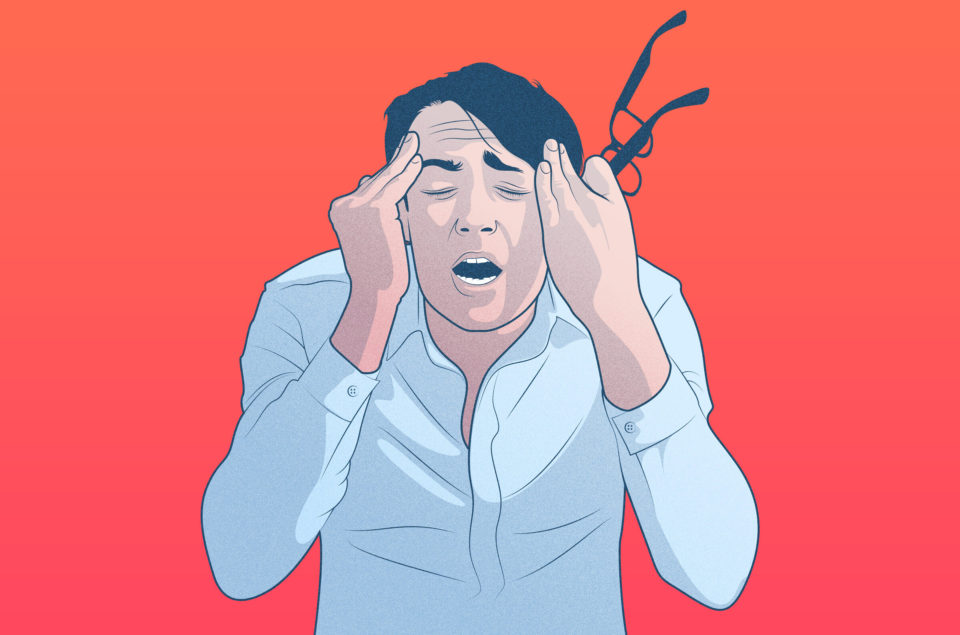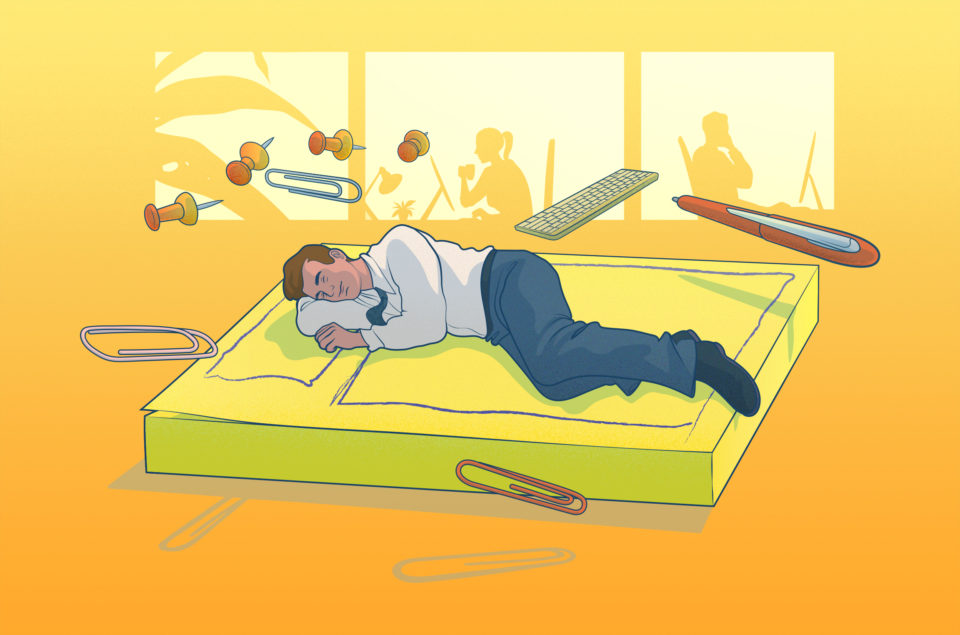How resetting your sleep schedule before returning to work can help your body with a gentler wake-up your first day back
Lazy days in the sun, late nights, cocktails and lie-ins. It’s hard to imagine returning to work when you’re busy enjoying your holiday. However, if you want to avoid a rude awakening on your first day back, you’d be wise to plan on gentle ways to get your sleep back on track the days leading up to your return. We’ll walk you through some tried and tested tips to beat your holiday hangover and help you wake up feeling refreshed and raring to go on your first day back to work!
In this article, we’ll cover:
- What happens when your body clock shifts during the holidays?
- How long does it take to reset a sleep schedule?
- 9 tried and tested tips to reset your sleep schedule and get your sleep back on track.
Vacay Sleep – what happens when your body clock shifts during the holidays?
Even with the best intentions, holidays can throw off your good habits of keeping to bedtimes and clocking in enough hours of sleep. The extra sunlight during the summer months makes it tempting to stay up later and compensate for it with sleeping in and waking up later during your vacation. So what happens to your body when your body clock (circadian rhythm) shifts dramatically during an intense period of time?
The circadian rhythm is the 24-hour internal clock in our brain – the physiology of which determines the cycles of alertness and sleepiness by responding to light changes in our environment. When your sleep pattern shifts (or becomes misaligned) resulting in lack of sleep or poor sleep patterns, this can have a detrimental impact on essential day-to-day functions and have an effect on the following:
- Mood disorders are often associated with disrupted circadian clock-controlled responses. Research suggests strong associations between circadian rhythms and mental health and recently also has discovered direct interactions between the circadian system and mood regulation.
- Digestion, metabolism and eating habits are also affected by the circadian rhythm – with studies indicating a disruption could lead to insulin resistance, diabetes and obesity.
- Memory consolidation and recall – although there is still more research needed on memory and its relationship with the circadian rhythm, it’s clear that the circadian system has an important impact on learning and memory, manifesting as marked changes in memory acquisition and recall across the day.
- Daytime sleepiness & insomnia is another common side effect of a misaligned body clock according to the Cleveland Clinic.
- A person’s ability to properly function day to day, resulting in multiple disorders can also be attributed to a misaligned circadian rhythm.
Finally, it’s important to keep in mind that having a severely misaligned circadian rhythm and sleep schedule, is in itself considered a sleep disorder. For example, Delayed Sleep Phase Syndrome (DSPS) is a sleep disorder in which a person’s sleep is delayed by two hours or more beyond what is considered an acceptable or conventional bedtime. The delayed sleep then makes it difficult to wake up at the desired time. At the opposite end of the spectrum, but still an extreme condition, is the Advanced Sleep Phase Disorder (ASP), where people regularly go to bed and wake up several hours earlier than most.
However, both of these misalignments usually take place over a longer period of time so don’t start fretting yet over the late nights you’ve had during some time off. Instead, prepare yourself and your body to recover in the best way from even this short period of disrupted sleep. Avoid jolting yourself awake your first day back, instead, slowly incorporate some helpful changes the days leading up to your return.
How long does it take to reset a sleep schedule?
If you’re resetting your sleep after an extended period of time away and if you’ve traveled through different time zones, a general guideline is that it usually takes one day per time zone. A great resource and hacks for how to beat jet lag can be found in our article. However, regardless of whether you’re traveling across time zones or simply holidaying at home, it’s important to bear in mind that the success of how soon you can reset your sleep schedule and get back in sync is based on how long you’ve experienced a misaligned circadian rhythm. The longer your sleep pattern has been exposed to disruption, the more patience may be required, for some with severe circadian misalignment, it can take between 10 days to 2 months before they start sleeping better.
9 tried and tested tips to reset your sleep schedule and get your sleep back on track.
If in your case, you’re simply trying to ease back into a healthier sleep schedule before work begins, here’s some of our best tips to help reset your body clock. If you suspect a more serious circadian rhythm disorder, taking the steps below will help, but should always be preceded by a visit to your doctor:
1. Try melatonin
Melatonin is a hormone that the brain produces in response to darkness. Research suggests that melatonin may regulate the circadian clock and that circadian rhythm disorders have a sensitivity towards the hormone melatonin. So when looking to shift your body clock to a schedule that helps you back to your regular routine, taking a melatonin supplement can be of help. This is especially helpful if prolonged periods of late nights and late mornings translate into difficulty falling asleep at night. To deepen your knowledge on melatonin, and to understand dosage units, how frequently it can be used and so on, catch up on the 1st of our 4-part melatonin series. But remember when considering supplements, it’s always advisable to consult your doctor.
2. Incremental shift to wake-up and bedtimes
If you have spent most of your holiday staying up and waking up later, you’ll find it difficult to simply go to bed early and expect to fall asleep. It’s likely the tossing and turning and worrying about sleep will delay the onset of sleep further. Instead, try setting an earlier bedtime in increments of 15 minutes. So if you’ve spent the holiday hitting the sack at midnight, bring it forward 15-20 minutes, until you’re back at your regular bedtime. Similarly with setting a wake-up time slightly earlier, in increments of say 30 minutes, you will slowly adjust your body to your previous sleep schedule and help shift your body clock back gently. Ultimately, your goal is to keep consistent and regular times for both going to bed and waking up.
3. Exposure to sunlight
Strategic exposure to light and especially sunlight in the morning can help promote better sleep and facilitate falling asleep. A study even shows that not only does sun exposure improve the quality of sleep, state of sleep, and sleep patterns, but also improves quality of life. Win-win! In contrast, exposure to artificial light later in the day and in the evening can delay the onset of sleep and shift your sleep schedule to later. During your holiday try scheduling a walk (or even just standing outside) first thing in the morning to soak up those precious rays.
4. Limiting alcohol and certain foods
If you’re not ready to give up your holiday cocktails just yet, perhaps try swapping your evening drink for a lunchtime tipple instead. Alcohol in the evening and close to bedtime may seem to work to put you to sleep sooner, however, the quality of your sleep will be severely affected as it reduces the REM sleep stage, resulting in a fitful night’s sleep and waking up in the morning without feeling rested. Try slowly phasing out alcohol completely a few days before returning to work. With regards to food, there are certain foods that can help promote better sleep as well as foods that should be avoided, such as spicy or fatty foods and foods with a high glycemic index. A few days before your return try loading up on sleep-promoting foods and cutting down or completely eliminating foods that interfere with your sleep.
5. Swap your phone for a book
Banishing screens from the bedroom, which emit lights and entice us to stay up late, has long been known to mess with our sleep. But try, instead, to keep a book on your nightstand to help promote restful sleep. A randomized, online trial conducted in 2019, concluded that reading a book in bed before going to sleep improved sleep quality, compared to not reading a book in bed. Furthermore, when keeping a cap on the amount of time you spend reading before you sleep, a study published in 2021 concluded that appropriate reading quantity was related with longer sleep duration.
6. Music and meditation
Listening to sleep aids such as calming music and guided sleep meditations can help both with the onset of sleep, but also promote a more restful sleep. To quote music psychology researcher, Thomas Dickson: “Listening to music at bedtime can not only help people fall asleep quicker but also improve sleep quality.”
7. Gentle exercise
There are several studies showing how exercise helps promote better sleep. Gentle aerobic exercise increases the amount of slow wave sleep (deep sleep) you get, which is crucial in restoring and rebuilding the brain and body as you sleep. However, be mindful of when you exercise. Exercise releases endorphins and raises body temperature, both of which can keep you awake longer than you intended. So try to schedule in any exercise during your holiday earlier in the day, or if you only find time to exercise later in the evening, schedule in a relaxing yoga session instead.
8. Avoid naps OR staying up all night
Lazy holidays and afternoon naps are delicious, but late afternoon naps, and certainly naps longer than 20 minutes will most likely interfere with your sleep later at night. To help your body shift back, cut naps out entirely to help you get back in sync. And at the same time, if you’re traveling back through time zones, don’t fall for the myth of staying up all night to help you back into a certain time zone. Pulling an all nighter will NOT reset your sleep schedule, instead, it will contribute to disrupting it further.
9. Prep your sleep space
At home, you may have created a sleep sanctuary which can be hard to replicate in a vacation rental or hotel. As best as you can, try sticking to the following guidelines to cultivate an optimal sleep environment even when you are away from home:
- Temperature: a slightly cooler room will help you sleep better. For adults, a temperature of between 60 to 67 degrees Fahrenheit (or 15 to 19 degrees Celsius) is recommended.
- Bring bedlinen or your favorite pillow with you on holiday. Crisp, cotton sheets and your memory-foam pillow can do wonders.
- Relaxing scents – essential oils, such as lavender oil can be used to spray on your before going to bed. Diffusers in the bedroom can also help you relax before nodding off to sleep.
- Try keeping your bedroom as dark as possible. Mobile blackout blinds that can be placed on windows with suction cups are a great way to minimize light filtering through windows.
“When we go on holidays, most people tend to sleep-in. Studies have shown that the humble 2-day weekend sleep-in can delay our body clock by an average of ~45 minutes. (Crowley & Carskadon, 2010; Taylor et al, 2008). So you can imagine how late our body clocks become after the holidays. This delay in our biological clock means it’s harder to wake up and get out of bed when we return to waking up earlier for work and school, and our performance on Monday mornings is worse – likely because the signals sent down our long brain cells are slower”, says Sleep Cycle’s Head of Sleep Science, Prof Mike Gradisar.
Investing some time to gently ease into a better sleep pattern before the holiday is over is well worth the effort. A sleep tracker like the Sleep Cycle app can help you figure out what you can change or maintain to reach or keep better sleep. Often with all the excitement of the holidays, we forget that rest and recuperation, after all, is the main purpose of our time off!
